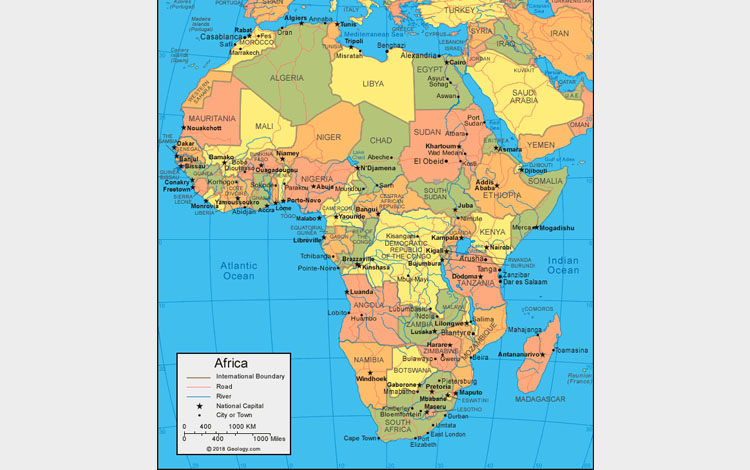Oct- 15-31, 2019
Two reports-Global Competiveness Index (GCI), by the World Economic Forum and Ease of Doing Business by World Bank- are regarded as the undisputed Economic report cards of countries around the world.It is important to take stock of how Africa fared in these two global reports. The results are there in the public domain. Mauritius, Nigeria, South Africa, Rwanda and Togo bagged impressive ratings. Certainly, it calls for celeberation. www.trendsnafrica.com & Africa4U congratulate and rejoice with these countries for their remarkable acheivement.
But the flip sides revealed by both surveys are causes for concern. Most of the difficult countries for doing business are also in Africa. In the case of Competitive Index, it is saddening that 65% of economies in the sub-Saran region score below 50 and their rankings come at the rock bottom. This is not the first time, such things are happening. Ever since the indices are introduced, this has been the case. Does it mean that the development works carried out in the region as a whole had failed to yield results? Such huge disparities in the rankings will be counterproductive to Africa’sambitiousintegration process envisaged underAfCATA and later for the larger unified African Union. Or does it mean, the yardsticks used by these ranking agencies are flawed to be applied to the developing and least developed countries and are tailor made to the developed and emerging economies?
Some of the generic trends noticed over the years in quantifying ranks of the countries have to be explained. Whether it is World Bank or World Economic Forum, the focus seems to be on quantification of attributes. It is time to introspect how the data are culled out. For instance, there are dictatorial regimes where license for starting a business unit can be obtained within no time and no objection certificates even environmental clearance can be obtained if one has the right contacts and knows the art of pleasing the rent seekers (euphemism for bribe takers). In a country, where the administration insists on due process before issuing a clearance, there may be dilatory processes that one may have to put up with. That does not mean speed and swiftness should be sacrificed: Not at all. What is important is to put in place transparent systems that grant permissions after undergoing the due process, even if it causes delays . That upholds the dictum that sustainable development needs peoples’ participation and not imposition of decisions.
Yet another area is the intrinsic paradoxes in the measurements under both surveys. It can lead to strange surmises like the most competitive country may be lagging behind in ease of doing Business index. One can argue that it is theoretically possible; but not easy to comprehend, particularly when the heads of several African countries started telling openly that they do not have any faith in the data being put out by international agencies, including that of rating agencies. Does it mean that the concept of ranking poor countries based on certain attributes framed for developed and emerging markets dispensed and a new set of ranking based on potentials and possibilities be evolved? Since such voices are raised from different quarters, it is desirable that this demand is examined objectively.





